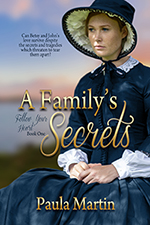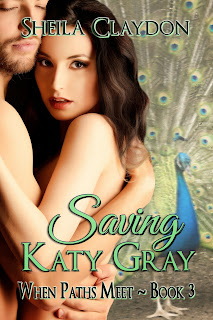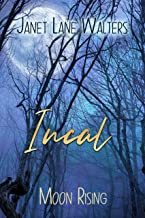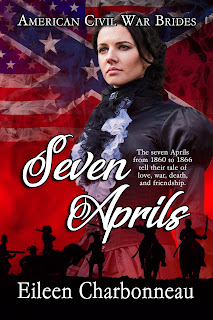In last month's blog, I referenced an Ojibwe legend about the Seven Fires Prophecies. It's a fascinating, genuine tale handed down over hundreds of generations by tribe Elders and Wisdom Keepers. The significance of these prophecies and how they've transpired over the centuries, cannot be understated. These prophecies became pivotal in the final book of The Twisted Climb series. Curious? Read more below in an excerpt from Chapter 20 of A Bright Darkness.
Chapter 20 - The Seven Fires Prophecies
“In the ages when time had just begun for my people – the original
Anishinaabe nation – seven prophets dared to speak to the Elders about the
future. Their predictions and warnings are called the Seven Fires Prophecies.
Each prophecy marks a significant turning point for our people. Let me explain.”
Mrs. Beeforth, the Ojibwe Elder, settled in her chair. “The first prophecy spoke of our origins, of how we had
to preserve our history, our traditions, and medicinal practices. All these
things were to be written on sacred scrolls. The prophet said we had to travel
from the shores of the great salt water – the Atlantic Ocean – to the land
where food grows on the water. If we did not travel to this land, we would die.”
“The Second Fire Prophecy would be upon us when we doubted the
wisdom of the Elders. During this time, the ancient ways would be ridiculed and
stifled. It would take the insight of a young native-born boy to re-direct the
people back to the traditional ways.”
“The Third Fire prophecy declared that the nation must
continue their journey west, to the chosen land – the land where food grows on
the water. I can tell you now that our people travelled for hundreds, perhaps
thousands of years, settling in the Great Lakes Region. There, the food on the
water was found – wild rice. Berries, beaver, deer and fish were also plentiful,
and our people flourished.”
“The Fourth Fire Prophecy was met with skepticism. Remember,
these prophets were from the beginning of our ages. In this prophecy, two prophets
foretold the arrival of a Light-skinned race. One warned that the future of our
people depended on whether or not the Light-skinned race was offering true
brotherhood. If they arrived with a handshake and desire to share their
knowledge, then our people would join to form a great nation. However, the
second prophet advised that if they came with weapons, and if they spoke from
both sides of their mouth and secretly desired to steal the riches from our
land, we should beware. If the rivers turned sour and the fish die, that is the
sign the Light-skinned race brings death.”
Mrs. Beeforth adjusted her glasses, eyes grim. “The Fifth
Fire prophecy foretold a struggle amongst all Indian nations; an internal
struggle concerning traditions and beliefs. The Light-skinned people promised
their own kind of salvation as long as we relinquished our beliefs. The
internal struggle amongst our peoples would last for many generations and bring
the nations to the brink of extinction.”
“The Sixth Fire Prophecy speaks to the results of the Fifth
Prophecy. The deceit of those pushing to destroy our way of life will become
evident when the wisdom of the Elders is disparaged and ignored. It will become
evident when children are removed from the teachings of the Elders, and when
our people are driven from their lands. A new sickness will befall our people
at this time. Languages will be lost. The purpose of life – of living, loving
and learning – will turn into shallowness and grief.”
“This is horrible,” Jayden muttered, “because it all came to
be.”
“Yes,” Mrs. Beeforth agreed. “It all came to be.” She took a
sip of water and continued.
“It was during this time that the Wisdom Keepers – priests
if you will – called upon every Elder and every Priest, from every tribe, to
gather all the sacred writings and scrolls. Everything that defined our people
– our medicines, our languages and our traditions – was to be inscribed on
birch bark and placed in a sacred bundle. This bundle would be hidden in a
hollowed-out log and the log hidden within the crevice of a rock cliff. The log
could only be reached by scaling down the cliff. All the knowledge of our
people, from time immemorial, would be kept hidden there until the Indian
people were ready to practice their beliefs and traditions, respect their Elders,
and resume our Native ways without reprisal from the Light-skinned people.”
* * *
Check out A Bright Darkness for yourself and read what the Seventh and final prophecy will bring.
In the meantime, stay safe!
J.C. Kavanagh, author of
The Twisted Climb - Darkness Descends (Book 2)
voted BEST Young Adult Book 2018, Critters Readers Poll and Best YA Book
FINALIST at The Word Guild, Canada
AND
The Twisted Climb,
voted BEST Young Adult Book 2016, P&E Readers Poll
Voted Best Local Author, Simcoe County, Ontario, 2022
Novels for teens, young adults and adults young at heart
Email: author.j.c.kavanagh@gmail.com
www.facebook.com/J.C.Kavanagh
www.amazon.com/author/jckavanagh
Twitter @JCKavanagh1 (Author J.C. Kavanagh)
Instagram @authorjckavanagh









.jpg)




.jpg)

























.jpg)

.jpg)




